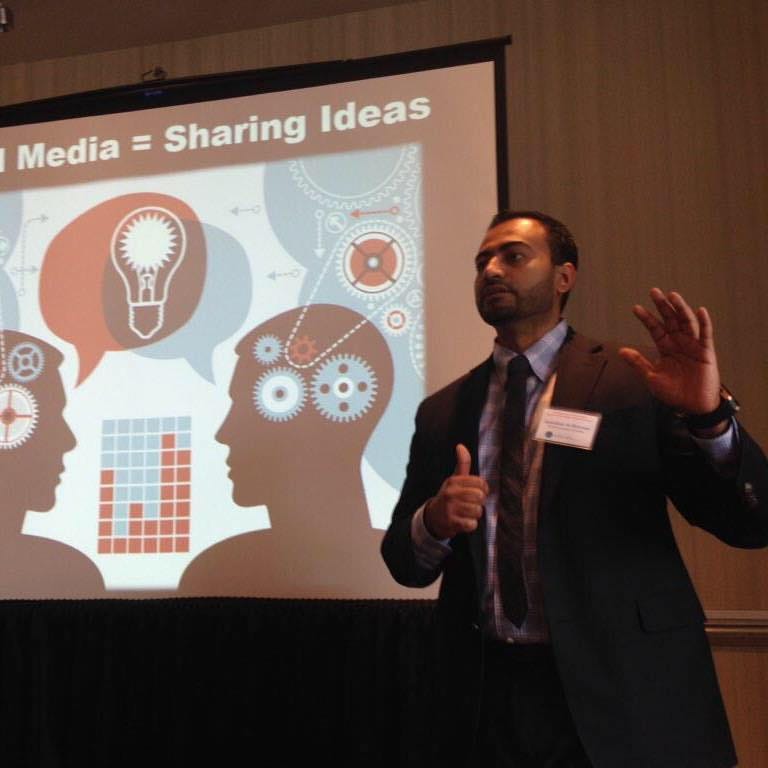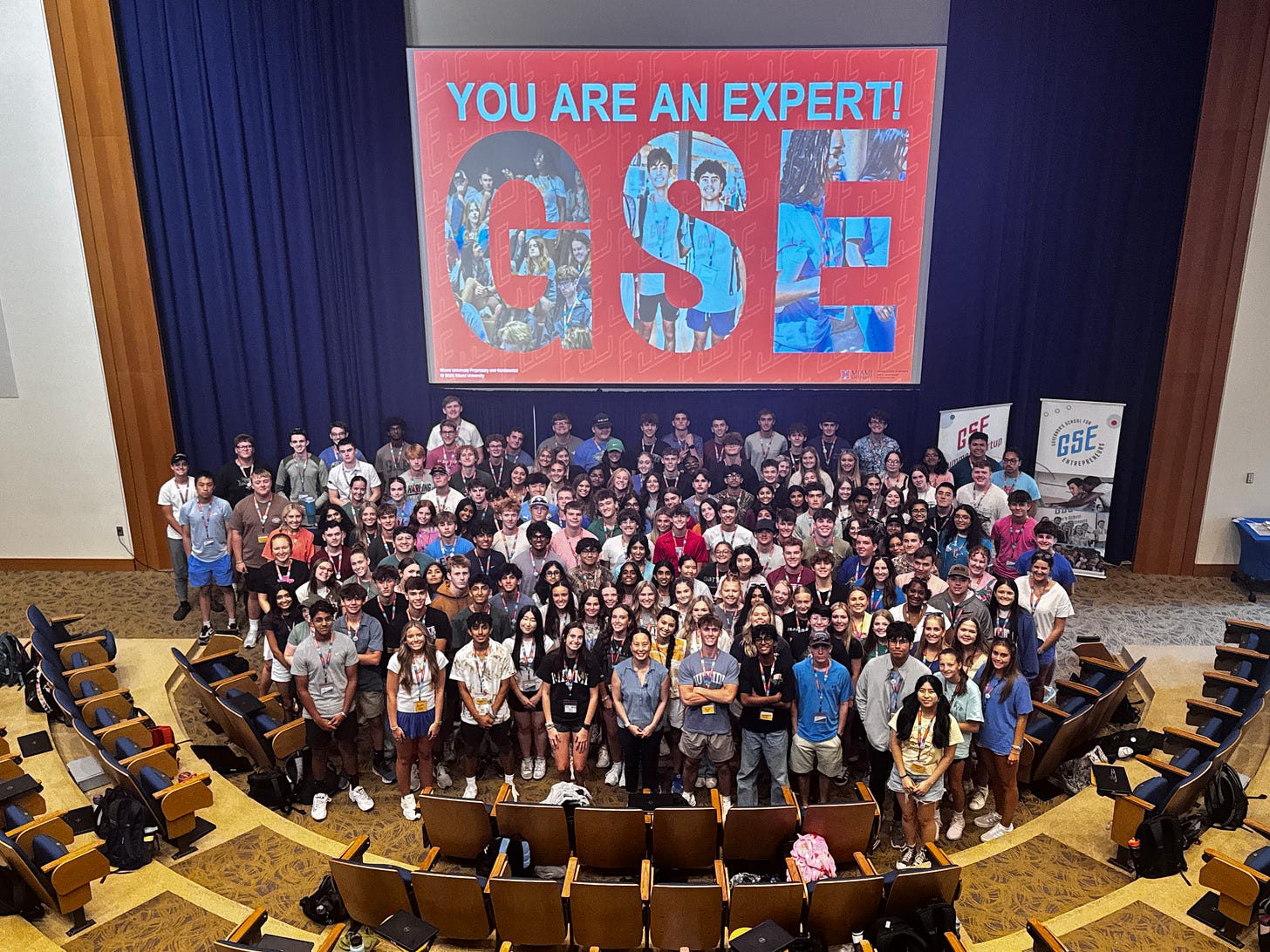Part 5 of the Big Beautiful Bill: The Importance of Economic Literacy
Now that the Big Beautiful Bill is the law of the land and has been signed by President Trump, I would like to look to the future and share some insights on important topics and outcomes. Rather than posting a lengthy article, I will share a five-part series on this topic over the next week. Expect a new article every day at 830am. This is part 5. If you want to read the 870-page bill, you can access it here.
The Problem: Economic Literacy
Thank you for joining me over the past five days as we investigated parts of the Big Beautiful Bill. Today, I'd like to let you know why you should invest in learning more about the economy that you navigate.
In today's economy, economic literacy is a requirement for success; being misinformed is no longer an option.
What I See on Social Media
Last week, I watched an Instagram Reel that claimed the "Rich" pay 37% of their income in taxes. As you now know from what we discussed in this series, that post confused the concepts of marginal and average tax rates.
The result? Millions of views and hundreds of comments spreading misinformation.
This week, I highlighted the differences between Medicare and Medicaid, which are often confused with each other in discourse. A quick scroll through social media reveals how many people hold strong opinions about economic policies, yet lack the economic foundations to support those opinions.
The Scary Statistics
According to the Council for Economic Education:
Only 28 U.S. states require high school students to take an economics course
Financial literacy requirements are in place in just 35 states
We are graduating students without the foundation needed to understand the policies they will vote on.
Investing in economic literacy is investing in democracy.
The Politics
I recall my undergraduate years. Perhaps I was naive, but I recall a greater emphasis on evaluating policies and economics. Today, as documented, we perceive ourselves more divided than ever. Our support of policies is based on the letter following the politician's name rather than the content of the policy. “Owning the libs”, or the conservatives, is what drives support for proposals, when it should be the well-being of the economy and people.
When we evaluate economic policies through political tribal lenses rather than economic evidence, we often end up with ineffective solutions that waste resources and sometimes exacerbate problems.
Have you noticed this in your own social media feeds? Do you find yourself initially reacting to economic news based on the source rather than the substance?
Attention Economy
Building a platform to voice your thoughts and expertise has never been easier. I started this journey in 2004 with a blog, then joined Twitter in 2012. When the pandemic hit, I shifted to video-based communication to connect with my students during remote learning. Now, this newsletter has become my primary teaching method; I reach more people through it than I do in a semester of traditional classroom teaching.
Here is the problem, though: the economics that goes viral isn't the type that I write about. My writing isn't doomsday or hyperbole; it is factual. It is balanced by looking at the pros and cons. When my writing favors or argues against a policy, it is because the economics has spoken. Sadly, in our attention-competing economy, this is not the way to grow a following.
Last Week
Last week, I attended the Governor School of Entrepreneurship because Jeni Al Bahrani was presenting to the students. While visiting, I talked to the students and learned about the startups they wanted to pitch. Several of them discussed their concerns about biased news or misinformation on social media platforms. One student was developing an app to help people identify reliable sources, while another was working on a platform to fact-check financial advice on social media.
As the students and I discussed, we couldn't determine whether this was a supply or demand issue. In economic terms, we were asking: is the news and information being supplied biased because producers find it profitable to create sensational content, or are consumers actively demanding misinformation and bias because it's more entertaining or confirms what they already believe? Do we gravitate towards the content that entertains or reinforces our biases? Like a pair of scissors that needs both blades to cut, the answer involves both sides of the market. A classic economic response is that most problems have multiple, interconnected causes working together to create the outcome we observe.
The Takeaway
If you’re looking for more content that critically evaluates and shares the economics, this is the place. Economic literacy enables you to make more informed decisions and navigate the complexities of our markets more effectively.
I hope you find a home here and that you invite your friends to subscribe. Like I told the students at the GSE, if we truly want better information, we need to find ways to reward it. After all, we all respond to incentives.
I will focus more on current economic news and help you make sense of the world we live in. I might post more frequently than once a week. If you prefer not to receive my posts frequently, please feel free to unsubscribe. I will totally understand! I have found myself holding back so that it doesn’t feel like I’m spamming you, but good economics doesn’t need to be withheld from the audience.
I'm committed to continuing this work despite the challenges because economic literacy isn't just an academic pursuit; I truly believe in its ability to transform lives.
Stay informed,
Dr. A
About the Author
Dr. Abdullah Al Bahrani is an economics professor and an award-winning educator. His research focuses on household finance and economic education. In addition to this newsletter, he has a YouTube channel and an Instagram account to share his economic insights. His goal is to improve economic literacy and well-being.
Other Economists on Social to Follow
Newsletters
Monday Morning Economists by Jadrian Wooten delivers short, engaging stories that show how economics connects to the world around us, from Taylor Swift’s concerns to tariff debates.
Stay-At-Home Macro (SAHM) by Claudia Sahm brings the best economic policy and macroeconomics to you. She covers a wide range of topics from inflation to jobs to Child Tax Credits and all things Fed
TikTok
EconChrisClarke by Chris Clarke digs deep into the research behind current events. He makes it entertaining.
keds_economist by Kathryn Anne Edwards Economist and freelance economic policy consultant. I study labor markets, public policy, and inequality.
Instagram
kylascan by kyla scanlon economic commentator, and educator with the goal to make the economy make sense. She creates videos, essays, and podcasts about the systems that shape our lives. Check out her newsletter, too.
Who do you get your economics news from?
I would love to hear your recommendations for sound economics. Please help us support good economics by providing some recommendations in the comments.





I believe the most concerning aspect is that, with the growing global trend of anti-intellectualism across the political spectrum, many individuals are beginning to believe that their economic “beliefs” or what their favorite politicians suggest are equally valid as what decades of economic theory and research have established. Even worse are those who dismiss experts in order to somehow hold onto their utopian views as if they have finally solved macroeconomics.
I think you said it best. It feels like vibes are influencing our policies. Since controversy sells people are ignoring the experts like yourself and flocking to those who makes things entertaining. I am surprised that financial and economic literacy is a topic with bipartisan support yet there is nothing in a lit of states. Ever since becoming an adjunct i do my best to econ relatable and fun. The alternative is nothing anyone wants.